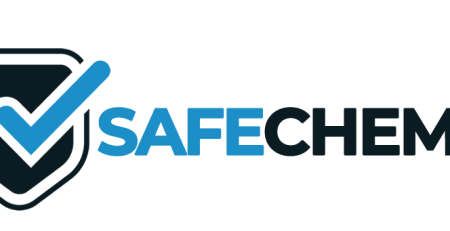Why Foodservice Operators with Multiple Outlets Need Cleaning and Hygiene SOPs
For foodservice operators running multiple outlets in Ireland, consistent cleaning and hygiene standards are essential. Whether managing a chain of restaurants, cafés, hotels, or catering businesses, ensuring uniform hygiene practices across all locations is critical for food safety, brand reputation, and regulatory compliance. The best way to achieve this is by implementing Standard Operating Procedures (SOPs) for cleaning and hygiene.
What Are Cleaning and Hygiene SOPs?
Standard Operating Procedures (SOPs) are detailed, written instructions that outline how, when, and by whom cleaning and hygiene tasks should be performed. These SOPs provide a structured approach to maintaining food safety, ensuring that every outlet upholds the same level of cleanliness and sanitation.
Key Reasons to Develop Cleaning and Hygiene SOPs for Multi-Outlet Foodservice Operators
1. Consistency Across All Locations
Without SOPs, cleaning and hygiene standards can vary from one outlet to another. This inconsistency can lead to uneven food safety practices, increasing the risk of contamination in some locations. A standardised cleaning SOP ensures that all outlets follow the same procedures, use the same cleaning products, and maintain the same hygiene standards.
2. Compliance with Irish Food Safety Regulations
The Food Safety Authority of Ireland (FSAI) requires all food businesses to adhere to strict hygiene regulations under EU and Irish law. Establishing SOPs aligned with HACCP (Hazard Analysis and Critical Control Points) helps businesses:
✔ Meet legal requirements for food safety.
✔ Avoid fines, warnings, or closures due to non-compliance.
✔ Ensure all locations pass inspections by the HSE’s Environmental Health Officers (EHOs).
3. Improved Staff Training and Accountability
With multiple locations, training staff on cleaning procedures can be challenging. A well-documented SOP provides clear instructions, ensuring that every employee, whether in Dublin, Cork, or Galway, follows the same guidelines. This:
✔ Reduces training time for new employees.
✔ Ensures consistent cleaning practices across all outlets.
✔ Holds staff accountable for completing tasks correctly.
4. Better Efficiency and Productivity
SOPs eliminate guesswork, allowing staff to follow a step-by-step cleaning process without delays. This increases efficiency by:
✔ Streamlining daily, weekly, and deep cleaning tasks.
✔ Reducing downtime between shifts due to poor cleanliness.
✔ Ensuring equipment is properly sanitized and ready for use.
5. Enhanced Customer Experience and Brand Reputation
A clean and hygienic foodservice environment directly impacts customer satisfaction. If one location fails hygiene standards, it can damage the entire brand’s reputation. SOPs help ensure:
✔ A clean, safe dining environment in every outlet.
✔ Consistent presentation and hygiene standards across all locations.
✔ Positive customer reviews and repeat business.
6. Reduced Risk of Cross-Contamination and Foodborne Illnesses
Foodborne illnesses can severely harm a business, leading to legal action, lost customers, and reputational damage. SOPs help prevent this by:
✔ Establishing proper handwashing and sanitation procedures.
✔ Implementing separate cleaning methods for raw and cooked food areas.
✔ Ensuring proper disinfection of equipment and food contact surfaces.
7. Effective Management of Cleaning Supplies and Costs
With multiple outlets, purchasing and managing cleaning supplies can become costly and inefficient without proper guidelines. SOPs:
✔ Standardise approved cleaning products and equipment for all locations.
✔ Prevent overuse or misuse of cleaning agents.
✔ Help control costs and inventory by ensuring efficient usage.
8. Preparedness for Health Inspections
Unannounced visits from Environmental Health Officers (EHOs) are common in Ireland. A well-documented cleaning SOP ensures all locations are always ready for inspections by:
✔ Maintaining detailed cleaning logs for verification.
✔ Ensuring critical areas are cleaned properly and regularly.
✔ Demonstrating a commitment to food safety and hygiene compliance.
Key Elements of a Cleaning and Hygiene SOP
When developing SOPs, foodservice operators should include:
✔ Cleaning frequency (e.g., daily, weekly, deep cleaning).
✔ Responsibilities (who cleans what).
✔ Step-by-step cleaning instructions for kitchen, dining areas, restrooms, and storage.
✔ Approved cleaning products and equipment to use.
✔ Food safety measures, including HACCP compliance.
✔ Record-keeping logs to track cleaning activities.
Final Thoughts
For foodservice operators with multiple outlets in Ireland, cleaning and hygiene SOPs are essential for maintaining food safety, regulatory compliance, and a strong brand reputation. Implementing standardised procedures ensures every location meets the same high hygiene standards, reducing risks and improving overall efficiency.
If you’re managing multiple outlets and need help developing customised cleaning SOPs, get in touch! Ensuring a safe, clean, and compliant foodservice operation is the key to long-term success. Start the conversion by emailing hello@alphahygiene.ie












Leave a Reply